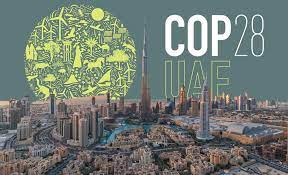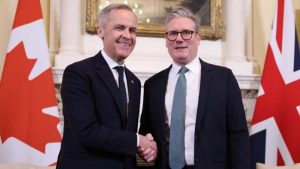
It is hard to deal with a ‘Bully’. Usually efforts, even reasonable ones of accommodation only lead generally to further demands – just ask Columbia University. That was why I was pleased to see Harvard University ‘dig in’ rather than try to accommodate the Trump administration. As Philip Stephens, contributing editor of the FT wrote in a recent piece on various allied responses to Trump’s tariff actions titled, ‘Placate or retaliate? Starmer and Carney are both right on Trump’:
“Canada’s Mark Carney has picked up the gauntlet. Britain’s Keir Starmer prefers to look the other way. Japan and South Korea lead the queue to strike a bilateral deal. … Kudos generally goes to those willing to stand up to “the bully”. Carney has transformed his Liberal party’s electoral prospects by relishing the fight. In Europe, Gaullism has gone mainstream. Emmanuel Macron’s call for Europe to break free of the Americans is echoed by chancellor-in-waiting Friedrich Merz in Berlin.”
“None of this makes pandering to Trump look heroic, particularly when, with characteristic vulgarity, the president publicly mocks the softly spoken. Opinion polls suggest Europeans would prefer their leaders to join Carney in the ring. Appeasing Trump may simply encourage him. He clearly enjoys humiliating America’s old friends. The answer surely is to show him that Trumpism has costs. Didn’t we learn at school that the way to beat bullies is to fight back?”
So a round of applause for the Harvard folk. But there will continue to be hard times – note the request by Trump to the IRS to end Harvard’s tax-free status. What additionally is needed then to blunt Trump’s actions? What is needed is: collaboration and group support from other universities and then collective action in the courts. Bending the knee to Trump will not work. Nobody said it would be easy.
David Wallace-Wells has pointed out in the NYT what the actions of the Trump administration have led to the following actions by US partners:
“Last week Spain’s democratic-socialist government proudly announced plans to intensify relations with China, after Treasury Secretary Scott Bessent warned that doing so would amount to “cutting your own throat.” President Emmanuel Macron of France urged European companies to stop investing in the United States, and the European Union as a whole, which is developing a retaliatory tariff response and plotting potential tax increases on American tech companies, announced it is sending a delegation to Beijing in July.
What comes next? Perhaps it shouldn’t be so hard to imagine, given the drift of what’s now called geoeconomics. Already, China commands global trade, and modeling from Bloomberg shows that, as constituted today, the tariffs will only add to the lead — pushing many more countries to work more with China and less with America. According to one model, 30 percent of American trading partners would fully recover from even total cessation of U.S. trade within one year; within five years, more than half would. This is why chaos is rarely the chosen strategy for a hegemon: Barring what Trump calls a “beautiful deal,” the biggest single beneficiary of the whole crusade may well end up being its intended target.”
So how do we deal with the dragon? Clearly there is ‘fire’ and a certain amount of ‘huffing and puffing’. But beyond the aggressiveness, think Taiwan, and even aggression – talk to the Philippines – about that, is there the prospect of securing a deal? And in the more immediate circumstances, is there the prospect of securing a bilateral trade arrangement, or even an enlarged one with China.
Let’s start with an assessment of what the Trump administration is up to. This is not an easy determination. What is the goal of the Trump administration? Kyla Scanlon, author of, the author of “In This Economy? How Money & Markets Really Work” wrote recently in the NYT:
“What is an overarching goal of these actions? Or, what is the purpose of Trumponomics?
In a word, reindustrialization.”
It is hard to see at times what is the end point for Trump and his minions: is it revenues, China decoupling, reshoring of manufacturing – all or none of the above. But for Scanlon it is evident – reindustrialization in the US and she goes on to say:
“To reindustrialize will require investment in people and machines — and a coherent strategy. Given the Trump administration’s aversion to collaboration and the internal contradictions of the factions within the administration, its reindustrialization drive appears disconnected from reality and destined to fail.”
She concludes that a successful strategy in the 21st century today, in her opinion, require the following from the US and its partners ultimately:
“Modern manufacturing is high-tech and requires different skills from those of the 20th century. The focus should be on advanced manufacturing sectors where America can lead through innovation, not just protectionism: pharmaceuticals, clean-energy technology, robotics and semiconductors.
Second, it would invest substantially in the foundations for industrial competitiveness like education, infrastructure, research and development (like the CHIPS Act) and work force training.
Third, a serious strategy would recognize that alliances matter. Rather than needlessly alienate partners like Canada, Mexico, Japan and the European Union, a sound approach would build cooperative frameworks that reduce dependence on geopolitical rivals while strengthening ties with allies. Selective decoupling would better serve America’s long-term interests.”
But what appears to be evident is that the Trump administration seems dramatically unwilling to work with partners and allies to enhance trade with them and to press China on what remains today a damaging economic policy from Beijing that increases production and exports as opposed to a more determined effort to improve domestic consumption. Yes, Xi Jinping and his associates have once again targeted energizing domestic consumption, but seeing is believing. We shall see.
What then is possible? Tom Friedman describes why it is highly unlikely that Trump will, or can, act in concert. As Friedman put in a recent NYT piece:
“So much crazy happens with the Trump administration every day that some downright weird but incredibly telling stuff gets lost in the noise. A recent example was the scene on April 8 at the White House where, in the middle of his raging trade war, our president decided it was the perfect time to sign an executive order to bolster coal mining.”
“It’s commendable that the president honors men and women who work with their hands. But when he singles out coal miners for praise while he tries to zero out development of clean-tech jobs from his budget — in 2023, the U.S. wind energy industry employed approximately 130,000 workers, while the solar industry employed 280,000 — it suggests that Trump is trapped in a right-wing woke ideology that doesn’t recognize green manufacturing jobs as “real” jobs. How is that going to make us stronger?”
“This whole Trump II administration is a cruel farce. Trump ran for another term not because he had any clue how to transform America for the 21st century. He ran in order to stay out of jail and to get revenge on those who, with real evidence, had tried to hold him accountable to the law. I doubt he has ever spent five minutes studying the work force of the future.”
“But this farce is about to touch every American. By attacking our closest allies — Canada, Mexico, Japan, South Korea and the European Union — and our biggest rival, China, at the same time he makes clear he favors Russia over Ukraine and prefers climate-destroying energy industries over future-oriented ones, the planet be damned, Trump is triggering a serious loss of global confidence in America.”
“The world is now seeing Trump’s America for exactly what it is becoming: a rogue state led by an impulsive strongman disconnected from the rule of law and other constitutional American principles and values.”
If indeed the US under a Trump administration is a rogue actor, and on too many days it does indeed look exactly like that. Put simply what is required and the answer may well be: coordination without the United States. And I’d add it begins with the Informals, most notably the G20.
There has been on and off talk that Trump will not attend the G20 Leaders’ Summit which will be held in Johannesburg, South Africa, on November 22-23rd. And senior US officials including Secretary of State Marco Rubio and Treasury Secretary Scott Bessent have failed to show up for at least early meetings. On the other hand, apparently, the United States has been active in the Troika – the gathering of the G20 members – the past host, the present one and future host – in assisting in carrying out a successful G20 Summit. As it turns out the United States is scheduled to take hosting in 2026. But the point is whether the US participates – if it doesn’t the UK would likely take the hosting in 2026 – and indeed possibly US absence might benefit the working of the G20 at the moment – a serious gathering like this may be critical in advancing needed global governance action.
Coordination without US participation – at least during Trump 2.0 – may be the necessary ingredient for advancing critical multilateral action. I will return to this soon.
Image Credit: FT and Neil Hall/EPA

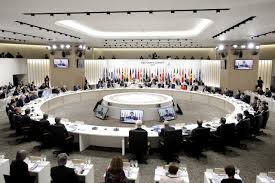
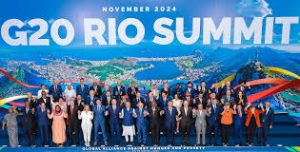
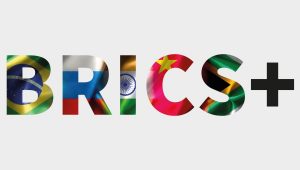

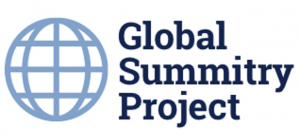 “Advancing global governance and human security for a better future”: A Symposium hosted by the Center for China and Globalization (CCG), America-China Public Affairs Institute (ACPAI) and the China-West Dialogue (CWD)
“Advancing global governance and human security for a better future”: A Symposium hosted by the Center for China and Globalization (CCG), America-China Public Affairs Institute (ACPAI) and the China-West Dialogue (CWD) 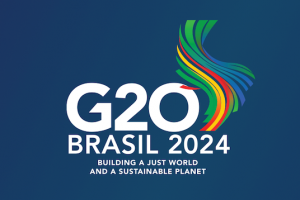 Who would think that the threat to the global order could emanate from global summitry leadership. But that appears to be a real possibility. Let me explain.
Who would think that the threat to the global order could emanate from global summitry leadership. But that appears to be a real possibility. Let me explain.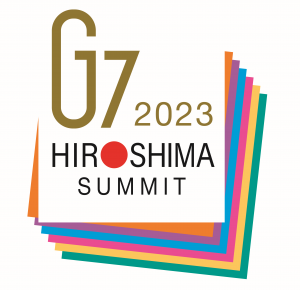 Yup, a little late in the weekend it is. But then for some Monday is a holiday. Mea culpa, but I was deep into completing a draft chapter for a yet to appear volume – which, in fact is scheduled to be released by 2025. The publication year, by the way, is important. My chapter will be part of a planned edited volume by Edward Elgar Publishing. There will be many chapters, so I am told, that will review and analyze the G7. It will do so on the 50th anniversary of the initiation of the G7 Leaders Summit. Yup, Rambouillet, the acknowledged first G7 Leaders Summit – it was actually, the G6 – France, Germany, Italy, Japan, UK, US at that moment in time – met in 1975. All the chapters, I suspect, will cover aspects of this ‘First Informal’, the G7, and, I suspect, the other Informals as well – that is the G20 and the BRICS.
Yup, a little late in the weekend it is. But then for some Monday is a holiday. Mea culpa, but I was deep into completing a draft chapter for a yet to appear volume – which, in fact is scheduled to be released by 2025. The publication year, by the way, is important. My chapter will be part of a planned edited volume by Edward Elgar Publishing. There will be many chapters, so I am told, that will review and analyze the G7. It will do so on the 50th anniversary of the initiation of the G7 Leaders Summit. Yup, Rambouillet, the acknowledged first G7 Leaders Summit – it was actually, the G6 – France, Germany, Italy, Japan, UK, US at that moment in time – met in 1975. All the chapters, I suspect, will cover aspects of this ‘First Informal’, the G7, and, I suspect, the other Informals as well – that is the G20 and the BRICS.